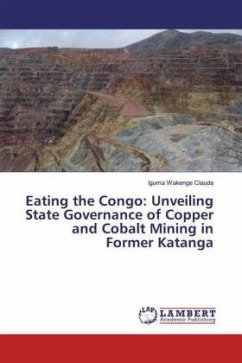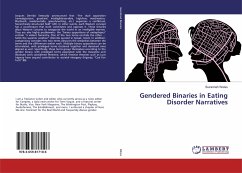
Eating the Congo: Unveiling State Governance of Copper and Cobalt Mining in Former Katanga
Versandkostenfrei!
Versandfertig in 6-10 Tagen
47,99 €
inkl. MwSt.

PAYBACK Punkte
24 °P sammeln!
Eating the Congo argues that the governance fabric of copper/cobalt mining in Congo is largely fragmented and that this fragmentation elicits, and accommodates itself of, numerous "practical norms." The state itself produces multiple administrative lines, generating its own confusion and thereby enabling (or forcing) its agents to develop their own informal governance practices. For these practices to function, people rely on social networking and informalized patterns of collaboration, rather than the official formal rules of the sector. Elements like ethnicity, protection, godfathering, etc....
Eating the Congo argues that the governance fabric of copper/cobalt mining in Congo is largely fragmented and that this fragmentation elicits, and accommodates itself of, numerous "practical norms." The state itself produces multiple administrative lines, generating its own confusion and thereby enabling (or forcing) its agents to develop their own informal governance practices. For these practices to function, people rely on social networking and informalized patterns of collaboration, rather than the official formal rules of the sector. Elements like ethnicity, protection, godfathering, etc. become crucial dimensions of these social networks. All of these interactions are embedded into, and contribute to reproducing, corrupt practices. Moreover, the book is written with considerable empathy and, amid the endless transaction costs, an endearing picture emerges of all the actors, their resilience, and their capacity for adaptation.












